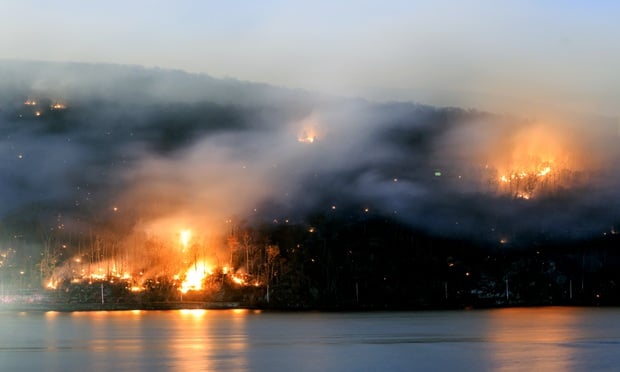A group that includes Allstate and other insurers, which is pushing for a federal-state catastrophe insurance program, is belittling a catastrophe proposal by an insurers' trade group.
The criticism was leveled by ProtectingAmerica.org against the American Insurance Association, which it said had “cobbled a catastrophe response plan that is inadequate, incomplete and insufficient.”
Among the measures being proposed by the AIA, which were unveiled today are stricter building codes that are strongly enforced, the inclusion of hurricane risk in land use planning, increased use of actual risk based pricing and the use of computer modeling in the rate setting process.
ProtectingAmerica.org, a coalition of insurance companies, first responders, homeowners' disaster recovery experts, and small and large businesses said that “by failing to include a privately financed catastrophe fund, the AIA plan endorses the risky status quo and depends upon a system of year-to-year reinsurance contracts at ever-escalating prices with no lasting or accumulated protection for homeowners.”
ProtectingAmerica.org has received a major impetus and funding from Allstate Insurance, which sustained over $1 billion in recent hurricane losses.
AIA President Marc Racicot responded to ProtectingAmerica.org's jab by saying in a statement, “We part ways with Allstate and their organization where they singularly focus and exclusively promote post-event subsidized funding for catastrophes through a national 'cat fund.'”
He said the nation must move “from this failed post-event mentality to an active prevention and protection mode.”
With the exception of the AIA, the industry has for the most part remained lukewarm to the idea. Fund proposals have yet to gain any traction either in the National Association of Insurance Commissioners or Congress.
“The only certainty contained in the AIA proposal is higher premiums for homeowners and an alarming dependence on offshore reinsurers and financiers,” according to Peter McDonough, a ProtectingAmerica.org spokesman.
Mr. Racicot countered that AIA's proposed program goes beyond the current “political thinking that would have us believe there is an easy way to address these complex issues.”
“Our agenda is based upon proven principles such as loss prevention and risk-based pricing,” he said.
Mr. McDonough said in essence that new solutions are needed for new risks.”Defending the status quo–counting on record-setting rate increases, crossed-fingers and hoping for the best–shortchanges American families,” he said.
Private insurance company contributions to catastrophe funds would be tax-exempt, as would the funds' earnings. They would grow, year after year, just like personal retirement accounts, and would be tapped only in the case of a catastrophe that would overwhelm the capacity of the private market, said Mr. McDonough.
“These funds are no more of a new government program than are IRAs,” he added. “To call this a government program is to say that individual IRAs are the Social Security System.”
Want to continue reading?
Become a Free PropertyCasualty360 Digital Reader
Your access to unlimited PropertyCasualty360 content isn’t changing.
Once you are an ALM digital member, you’ll receive:
- Breaking insurance news and analysis, on-site and via our newsletters and custom alerts
- Weekly Insurance Speak podcast featuring exclusive interviews with industry leaders
- Educational webcasts, white papers, and ebooks from industry thought leaders
- Critical converage of the employee benefits and financial advisory markets on our other ALM sites, BenefitsPRO and ThinkAdvisor
Already have an account? Sign In Now
© 2024 ALM Global, LLC, All Rights Reserved. Request academic re-use from www.copyright.com. All other uses, submit a request to [email protected]. For more information visit Asset & Logo Licensing.








